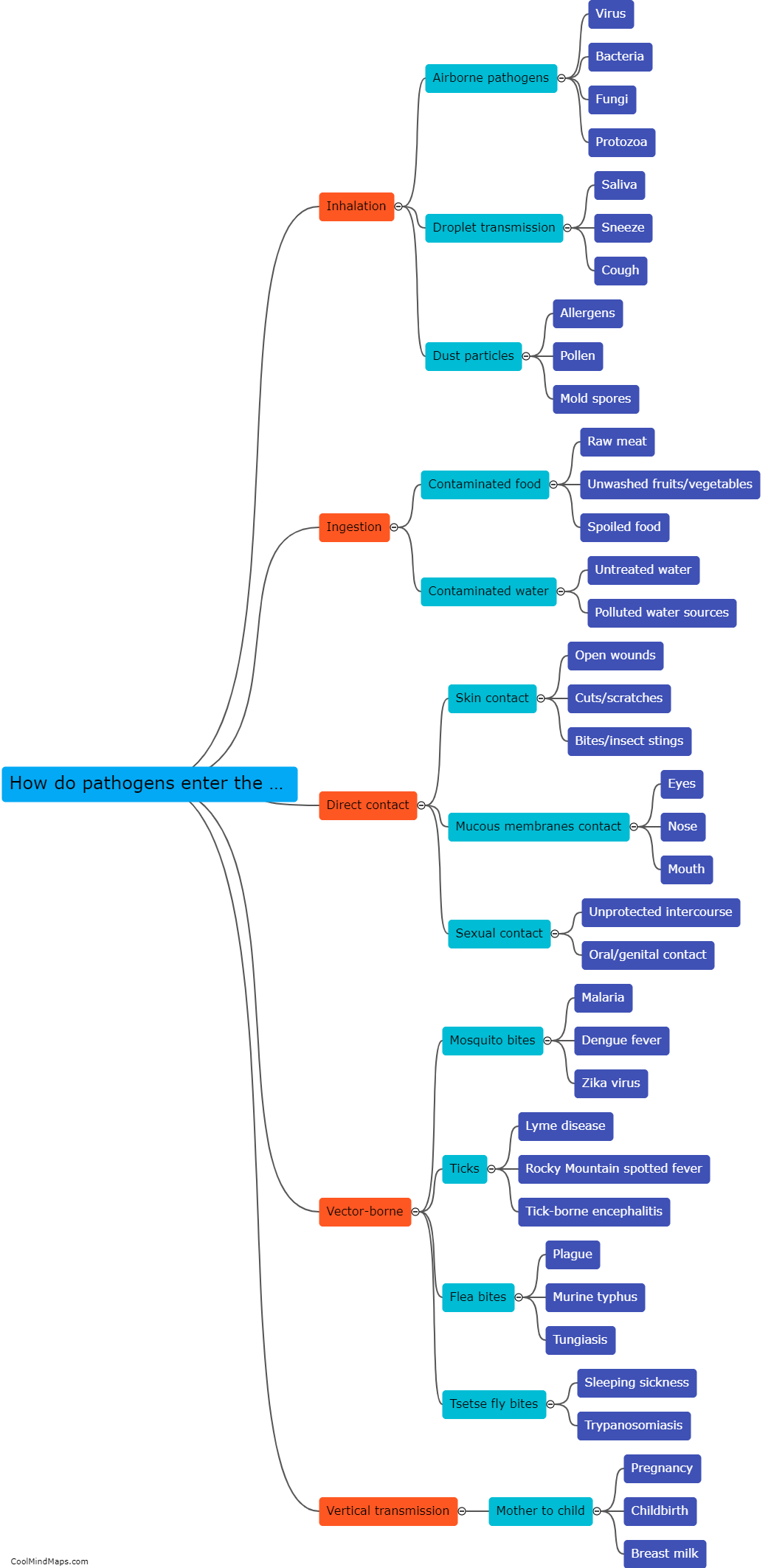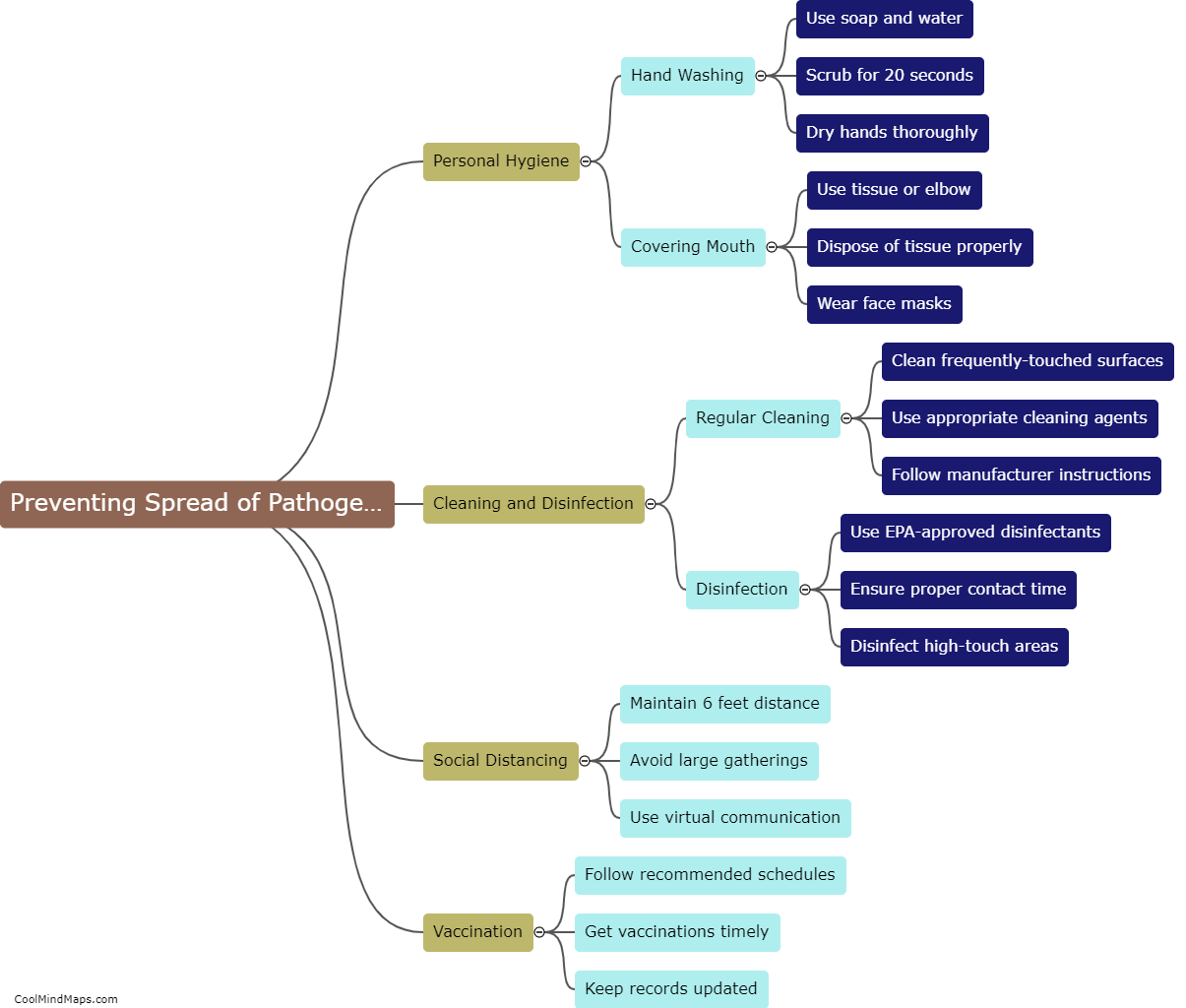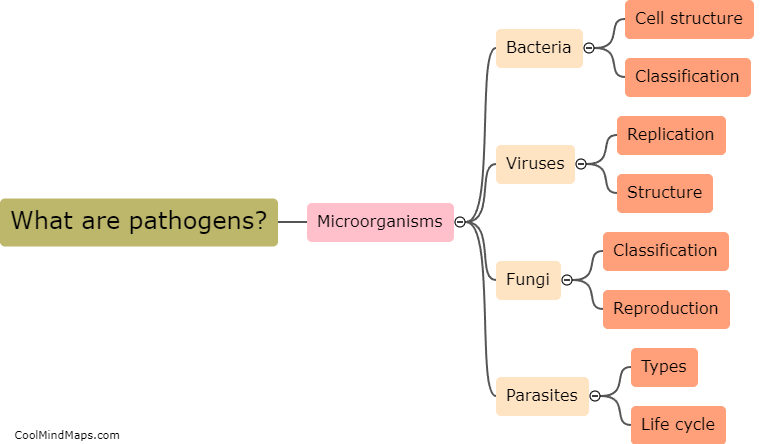What diseases do pathogens cause?
Pathogens are microorganisms that can cause a variety of diseases in humans and animals. These diseases can range from mild infections to severe, life-threatening illnesses. Common pathogens include bacteria, viruses, fungi, and parasites, each with their own unique mechanisms of infection. Bacterial pathogens such as Streptococcus and Staphylococcus can cause respiratory, skin, and urinary tract infections. Viral pathogens, including influenza and measles viruses, can lead to respiratory infections, flu-like symptoms, and even systemic illnesses. Fungal pathogens like Candida can cause infections in different body parts, including the mouth, skin, and genitals. Parasitic pathogens such as malaria parasites and intestinal worms can cause parasitic infections. Overall, the presence of pathogens often results in a wide range of diseases and their effective control and prevention are crucial for maintaining public health.

This mind map was published on 5 December 2023 and has been viewed 77 times.











